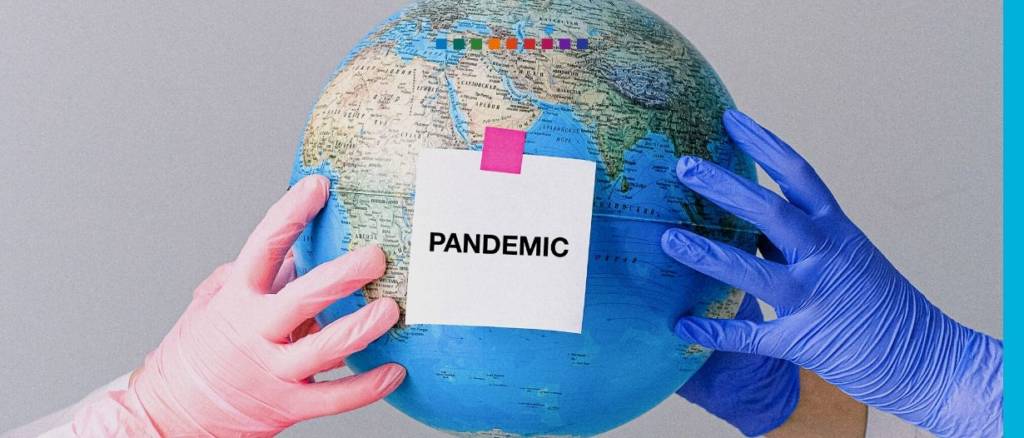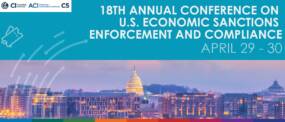TFG’s Joana Fabiao (JF), had the opportunity to sit down with David Thambiratnam (DT), CEO of Veridapt, a global force in commodity management for over 15 years.
Breakdown of Veridapt
JF: In a nutshell, what does Veridapt do?
DT: Veridapt has expanded from our founding focus on providing visibility of fuel supply chains to our mining and industrial customers into a fintech company that works with financiers and merchants to provide real-time visibility of collateral, significantly reducing operational risk in trade. Our simple, but effective inventory monitoring solution provides transparency on the commodity and helps alleviate risks from fraud and misappropriation.
We designed our platform to continually monitor the commodities being financed, whether crude oil in a tank or grain stockpiles in a field. Alerts and alarms are built in to go off if there are any anomalous changes, or if total values fall below operational thresholds, informing the user immediately. This provides a lot more certainty and reduces much of the human error associated with more traditional approaches to monitoring commodities. Our solution is what we call ‘plug and play’- installed within 24 hours and independent of any existing systems on-site. Most importantly, that means we provide an independent view of the collateral.
Our customers have used our system to increase revenues by expanding their customer lists and volumes to transactions that may have previously been too challenging from a risk perspective. Purely from a financing perspective, we are seeing better appetite and increased advance rates.
We are very excited to recently have been able to start helping our customers meet their ESG goals by providing independent verification of Greenhouse Gas Emissions with accurate measurement and reporting at the point of production.
So in a nutshell, Veridapt:
- reduces operational risk
- helps open up new revenue opportunities
- helps our customers meet their ESG goals

How the pandemic impacted Veridapt’s mission
JF: Has Veridapt’s strategic direction changed as a result of the pandemic?
DT: Thankfully we have made it through the pandemic and exceeded all our targets. The pandemic did force us to rethink how we engaged with our customers, as not being able to travel and build relationships with our customers was more difficult, however, like so much of the world, we have adapted.
As a hardware manufacturer, we started to experience huge challenges due to global supply chain shortages. We quickly realised this was a global problem, and that the pandemic was creating massive supply chain shortages and that liquidity was becoming a real problem throughout the business world.
Unlike in pre-pandemic times, when just-in-time deliveries were often the preferred practice in order to manufacture to demand, companies are now forced to shore up inventories to safeguard against shortages. That means they are holding more capital in inventory and so there is an even greater need today to monetize inventories to improve liquidity.
For Veridapt to come out with a product for the banking and trading sectors that helps reduce risk was very timely and fortuitous for us. The message that we can reduce operational risk is resonating very well with our customers. Trade digitisation has never been more important. We are happy and proud, I might say, that we can provide a great solution that is solving their needs at this challenging time.
The main challenges in supply chain management
JF: What are some of the main challenges for financiers and traders in supply chain management? Does this impact the provision of trade finance from lenders?
DT: Clearly, COVID has presented significant challenges to supply chain management, from production disruptions to parts of the logistics chains and ultimately the changing end markets in terms of consumer behaviours. This has created a great deal of uncertainty in markets which, coupled with losses due to fraud and in some cases a general lack of transparency, makes lending decisions more difficult — particularly for new business and smaller, less established players.
And beyond the immediate challenges posed by COVID, there are systemic issues in supply chain financing. Commodities theft and fraud on both large and small scales is rising and lenders are taking note.
There are also difficulties in obtaining financing for inventory in all types of jurisdictions from markets with low sovereign ratings right through to established well-developed markets. We have seen some banks withdraw from commodity financing, and others reduce their risk profile to only finance low-risk platinum-grade customers. There is an increasing under-served market and we see ourselves playing a role to help provide certainty to financiers and traders across the entire financing spectrum.

How Veridapt can help clients increase their sustainability
JF: How can Veridapt help its clients reach ESG goals and increase sustainability in global supply chains?
DT: Our position is unique. We monitor the fuel consumption of every asset of our customers. Each year we monitor over 5 billion litres of fuel. That’s equivalent to more than 13 million tonnes of CO2 emissions. We provide accurate measurements of CO2 emissions down to the production point and our mining and industrial customers are now able to use this granular information to track their sites’ performance against corporate ESG targets. This is an invaluable tool.
Some innovative banks have been working with us on new models that take advantage of our technology to meet both their ESG goals as well as those of their customers.
One example is an oil terminal that wants to sell carbon offset crude to its customers. In this case, we will continually monitor incoming and outgoing flows of crude and will work with the customer, who is also the terminal operator, and their bank in real-time to carbon offset each transaction.
In the future, we will be incorporating carbon-intensity feeds from external sources so that we can more accurately report on emissions based on the production region and originating wellhead. We will also measure the fugitive emissions associated with transportation and storage to create a more complete picture of the total emissions that need to be offset.
While this is just one example, we see our solution as providing the answers that help customers meet their ESG goals.

Veridapt’s innovative solutions
JF: Are there any new solutions you are working on that you could share with us? What are the next steps for Veridapt?
DT: We are a technology company first and foremost, so we always are improving and innovating on our solution. Importantly, we work closely with our customers to understand the problems they are facing and then harness our product development skills to deliver solutions that will hopefully over-deliver.
I’ve already described our latest developments around the measurement and offsetting of carbon emissions. We are really excited about this because we can see that with the increased focus on ESG objectives, customers are looking for solutions to help them. We have something concrete that is practical and works.
Another new technology that we are quite excited about is live stockpile monitoring. For 15 years we have been focused on liquids and any bulks that are stored in silos. Being in Australia, we recognise there is a large opportunity to provide a similar capability for agricultural and metal stockpiles. We have taken best-of-breed LIDAR sensors and combined them with our field hardware to deliver what we believe is a truly unique solution to monitor volumes of stockpiles in real-time, similar to what we do with liquids. We build this as a new type of commodity on top of our existing AdaptSCF platform so that banks who are already using our platform can now use our solution to monitor freestanding stockpiles.
There are many solutions out there to monitor stockpiles, but they almost always involve large capital investment and are not suited to the temporal nature of a financing deal. We have designed this from the very start to be easily and inexpensively deployable so that there is no cost barrier to adding this solution into a financing deal. We expect to launch this solution this quarter.
Finally, we introduced AdaptSCF DealFlow in April this year. One of the challenges we see is post-deal origination. In other words, there are still significant coordination activities required during the life of the deal that need to be addressed. There can be facilities inspections, quality reports, inventory accumulations or sell downs. The list goes on.
DealFlow helps our customers:
- manage the workflow associated with these complex deals
- ensuring that multiple teams within the organisation can collaborate, share documents and tasks
- have visibility of what activities are outstanding
Our customers use this solution to standardise their processes and ensure there is no process risk due to human error. We will shortly be linking real-time inventory data related to the deal and providing a ledger view of the collateral, tracking accumulations and sell downs. Keeping all of this information in place greatly improves efficiency and reduces human error, thus process risk. I’m pleased to say we have had great feedback from our users.
The importance of trust
JF: One of Veridapt’s main aims is to build trust and provenance. Why is this so important?
DT: We understand that to unlock the capital in supply chains, trust is paramount. However, the world is a risky place, creating the need for verification, and with verification comes trust. We believe without trust the wheels of the economy cannot run. Banks will not finance, companies will not have liquidity. We see our role as helping to provide some of that trust through transparency and visibility.
 Australia
Australia Hong Kong
Hong Kong Japan
Japan Singapore
Singapore United Arab Emirates
United Arab Emirates United States
United States France
France Germany
Germany Ireland
Ireland Netherlands
Netherlands United Kingdom
United Kingdom










Comments are closed.